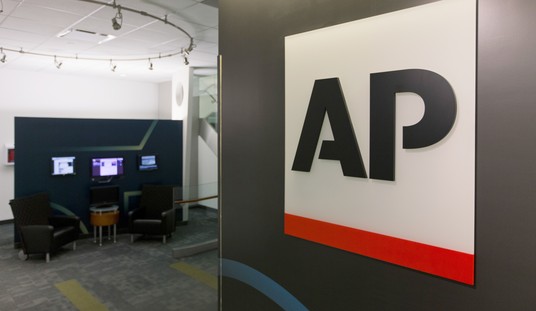The Food and Drug Administration (FDA) is on the verge of taking the highly unusual step of “decertifying” the cancer drug Avastin that it had previously approved. In addition to sparking concerns that this is another step towards medical rationing, the FDA’s proposal will worsen another important but less-frequently recognized danger of government-run health care — namely, the politicization of health benefits. Both problems will accelerate under ObamaCare unless our politicians repudiate the principle of government-run health care.
Avastin is used to help lengthen and improve the quality of life of patients with late-stage cancers of the colon, lung, kidney, and brain. (It cannot cure these terminal cancers.) As the Washington Post recently reported, the FDA had also approved it for late-stage breast cancer, but based on recommendations from its scientific advisory panel it is considering rescinding that approval on the grounds that the risks outweigh the benefits.
Conservative commentators have warned that this could be the beginning of European-style rationing of expensive medical treatments. (Avastin treatments cost $8000 per month.) Liberals counter that the advisory panel’s decision was based on scientific grounds, without consideration of costs. But even if the liberals are technically correct, it is also highly likely that new Medicare administrator Donald Berwick will seize this opportunity to deny coverage for Avastin — especially given his avowed support of British-style cost-effectiveness rationing. Because private insurers often follow Medicare’s lead in determining drug coverage, an FDA decision to decertify Avastin would likely also affect many patients with private insurance — also thus amounting to de facto rationing.
Besides the issue of rationing, the FDA proceedings are also sparking the second great evil of government-run health care — namely, the politicization of health benefits. The FDA usually follows the recommendations of its advisory scientific panel — but not always. Hence, special interest groups are gearing up to pressure the FDA to disregard the panel’s ruling. Several congressmen have already sent letters to the FDA urging them to continue approving Avastin, essentially seeking to use their political power to influence the FDA’s decision.
Such politicization of health benefits is not new. A similar political fight erupted earlier this year with respect to screening mammography coverage under ObamaCare. When the U.S. Preventive Services Task Force (USPSTF) recommended restricting screening mammograms to women over age 50 (despite standard medical practice of having women starting at age 40), it aroused tremendous political controversy — especially because the initial version of ObamaCare legislation gave the USPSTF the authority to determine which screening tests must be (or need not be) offered by insurance companies. Senator Barbara Mikulski then used her political influence to overrule the USPSTF and include mammography coverage for women over age 40 in the final version of ObamaCare.
Politicization of health benefits is already routine in Massachusetts, which since 2006 has had a system of mandatory insurance similar to ObamaCare. Since 2006, special interest groups have successfully lobbied to include 16 new benefits in the mandatory package (including lay midwives, orthotics, and drug abuse treatment) — and the state legislature is considering dozens more. As ObamaCare is phased in, we can expect similar politicization of health benefits at the national level.
To “solve” this problem, some lawmakers want an Independent Payment Advisory Board (IPAB) that would be theoretically insulated from political pressure to make cost-cutting coverage decisions for Medicare (and possibly later for private insurers). But this merely highlights the problem inherent in any form of government-run “universal health care.” Either your medical benefits will be determined by pressure group politics — or rationed by unaccountable bureaucrats. Heads you lose, tails you lose.
The basic problem is that government should not be making these sorts of medical coverage decisions at all. Neither the FDA, the USPSTF, the IPAB, nor any other alphabet-soup government agency should decide what treatments and procedures you may (or may not) receive when your life is at stake. Instead, patients should be allowed to purchase the treatments they wish (in consultation with their physicians) in a free market based on their own individual priorities and preferences.
This is especially important for drugs like Avastin that can still help many individuals, even if it is difficult to conclusively demonstrate a major benefit for large numbers of patients. Patients (and their doctors) should be left free to decide whether Avastin would benefit them as individuals — not as part of a statistical cohort.
Likewise, the issue of cost for drugs like Avastin would also be best addressed by a free market for health insurance. Some people might prefer to pay higher premiums for a “gold plated” insurance plan that will cover expensive drugs in the event they developed a terminal illness — even if it might only extend their life by a few months. In contrast, others might not wish to spend extra for that small marginal benefit. They might prefer more modest insurance which didn’t cover such treatments — and instead use the money they saved for more important personal priorities such as buying a new home, starting a business, or saving for their children’s college fund.
A free market for health insurance would allow insurers to offer both types of plans (or anything in-between) — and would allow customers to freely join insurance risk pools with others sharing their same preferences and priorities. Those who wished future access to expensive drugs that might lengthen their lives by a few weeks or months would be free to pay for that option. Conversely, those who didn’t would not be compelled to pay for those who did.
Only a free market avoids the twin dangers of rationing and of politicized health benefits inherent in government-run health care. Only a free market allows patients to purchase the level of insurance they wish according to their best rational judgment. And only a free market protects the right of the individual patient — not the government — to decide whether the possible extra months of life offered by drugs like Avastin would be worth to her the expense and possible side effects.
If you had terminal cancer, who should decide what treatments you may receive during your last few irreplaceable months of life? You, in consultation with your doctor? Or politicians and bureaucrats in Washington, D.C.?
Unless we repeal ObamaCare, get ready for the latter choice.









Join the conversation as a VIP Member